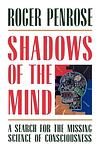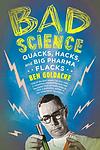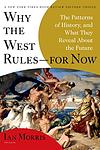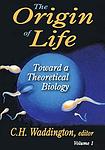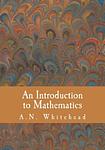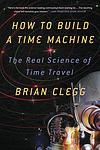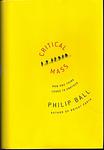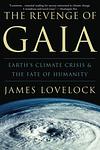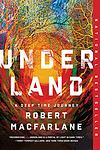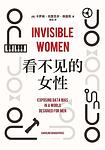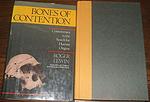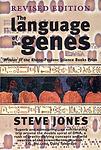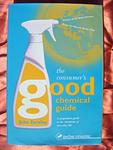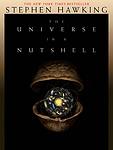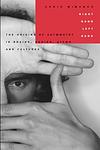The Greatest Israeli, British "Science" Books of All Time
Click to learn how this list is calculated.
This list represents a comprehensive and trusted collection of the greatest books. Developed through a specialized algorithm, it brings together 305 'best of' book lists to form a definitive guide to the world's most acclaimed books. For those interested in how these books are chosen, additional details can be found on the rankings page.
Genres
The category of "Science" in books encompasses a wide range of topics related to the natural world, including physics, chemistry, biology, astronomy, and more. These books may explore scientific theories, discoveries, and advancements, as well as the history and philosophy of science. They may also cover practical applications of science, such as technology and medicine. Overall, the Science category offers readers a deeper understanding of the world around them and the scientific principles that govern it.
Countries
Date Range
Reading Statistics
Click the button below to see how many of these books you've read!
Download
If you're interested in downloading this list as a CSV file for use in a spreadsheet application, you can easily do so by clicking the button below. Please note that to ensure a manageable file size and faster download, the CSV will include details for only the first 500 books.
Download-
26. Pluto's Republic by Peter B. Medawar
"Pluto's Republic" is a collection of essays and lectures that delve into the philosophical and social aspects of science, exploring the nature of scientific thought, the relationship between science and literature, and the role of creativity and intuition in scientific discovery. The book also examines the ethical implications of scientific progress, the conflict between science and religion, and the challenges of scientific education. Through a series of thought-provoking pieces, the author, a Nobel laureate, offers insights into the human side of scientific endeavor, advocating for a more nuanced understanding of the interplay between science and society.
The 6169th Greatest Book of All Time -
27. A Leg To Stand On by Oliver Sacks
In this introspective memoir, a renowned neurologist recounts his personal journey of recovery after suffering a severe leg injury in a mountaineering accident. The narrative delves into the author's profound experience of losing the sense of connection with his leg, as it becomes a foreign, unresponsive object. Through his convalescence, he confronts the challenges of physical and psychological healing, exploring the intricate relationship between the body and the mind. His reflections on the nature of illness, the process of rehabilitation, and the empathy required by medical professionals offer a deep understanding of the patient's perspective and the human capacity for resilience.
The 6297th Greatest Book of All Time -
28. Stuff Matters: The Strange Stories Of The Marvellous Materials That Shape Our Man Made World by Mark Miodownik
In this captivating book, the author explores the fascinating world of materials that surround us, revealing their hidden stories and remarkable properties. From the glass in our windows to the concrete in our buildings, Miodownik takes readers on a journey through the history, science, and cultural significance of everyday materials. With a blend of personal anecdotes, scientific explanations, and historical context, he showcases the marvels of materials and their impact on our lives, ultimately highlighting the beauty and complexity of the man-made world we inhabit.
The 6606th Greatest Book of All Time -
29. Shadows Of The Mind by Roger Penrose
In "Shadows of the Mind," the author delves into the complex relationship between the physical brain and the conscious mind, arguing against the prevailing computational theory of mind. The book presents a hypothesis that human consciousness transcends algorithmic computation, suggesting that quantum mechanics plays an integral role in the emergence of consciousness. The author critiques the limitations of artificial intelligence in replicating human thought and proposes that understanding consciousness may require new physics that bridges the gap between the known scientific principles and the phenomenological experience of awareness.
The 6909th Greatest Book of All Time -
30. Bad Science by Ben Goldacre
This book exposes the ways in which the media and advertisers manipulate and misrepresent science, leading to public misconceptions and confusion. The author, a doctor and science journalist, provides a critical examination of the pseudoscience behind popular health fads, cosmetics, and alternative medicine, while also critiquing the misuse of statistics and flawed studies. The book serves as a guide to understanding the scientific method and how to discern good science from bad, aiming to promote scientific literacy among the general public.
The 7179th Greatest Book of All Time -
31. Why the West Rules - For Now: The Patterns of History, and What They Reveal About the Future by Ian Morris
This book is a comprehensive exploration of the historical and cultural patterns that have led to Western dominance in the world. The author uses a broad range of evidence from archaeology, genetics, and linguistics to trace the development of East and West from prehistoric times to the present, arguing that physical geography, rather than culture, religion, or great men, is the primary driving force behind the rise of the West. The book also offers a forecast for the future, predicting a shift in global power from the West to the East.
The 7885th Greatest Book of All Time -
32. Through the Language Glass: Why the World Looks Different in Other Languages by Guy Deutscher
This book explores the link between language and perception, challenging the conventional belief that languages are only tools for describing reality and do not influence the way we perceive the world. The author delves into how different languages can shape the way their speakers understand and interact with their surroundings, arguing that linguistic differences can significantly impact cognition and perception. The book combines linguistic analysis, cultural history, and cognitive science to provide a fascinating examination of how our mother tongue can affect our cognitive processes, including color perception and spatial orientation.
The 7885th Greatest Book of All Time -
33. Science and the Modern World by Alfred North Whitehead
"Science and the Modern World" is a philosophical exploration of the impact of scientific advancement on contemporary society. The author examines the development of science and its historical influence, asserting that modern science has transformed our understanding of the world and ourselves. He explores the philosophical implications of scientific discoveries, discussing topics such as the nature of matter, time, space, and the relationship between mind and body. He also critiques materialistic and mechanistic views of the universe, advocating for a holistic and organic worldview.
The 7988th Greatest Book of All Time -
34. The Nature of Life by C. H. Waddington
"The Nature of Life" is a comprehensive exploration of the biological and philosophical aspects of life. The author delves into the complexity of life, discussing concepts such as evolution, genetics, development, and the environment. The book also explores the philosophical implications of these concepts, examining the relationship between science and philosophy and the nature of life itself. The author's extensive knowledge and innovative ideas provide a unique perspective on the subject, making it a thought-provoking read for anyone interested in biology and philosophy.
The 7988th Greatest Book of All Time -
35. The Expanding Universe by Arthur Eddington
"The Expanding Universe" is a scientific exploration of the concept of an ever-growing universe. The author delves into the theories and evidence that support this idea, including the redshift of light from distant galaxies and the implications of Einstein's theory of general relativity. The book also discusses the philosophical and theological implications of a universe that had a beginning and will have an end, making it a fascinating read for both scientists and general readers interested in cosmology.
The 7988th Greatest Book of All Time -
36. An Introduction to Mathematics by Alfred North Whitehead
This book serves as a comprehensive guide to the fundamental concepts and principles of mathematics. It provides an in-depth overview of different mathematical concepts, including algebra, geometry, calculus, and logic, and their applications in various fields. The author makes use of clear and concise language, making the complex world of mathematics accessible to novices. The book also discusses the historical development of mathematics, its philosophical aspects, and its role in the advancement of human civilization.
The 7988th Greatest Book of All Time -
37. How To Build A Time Machine by Paul Davies
The book is a fascinating exploration of the theoretical underpinnings and scientific principles that suggest the possibility of time travel. It delves into the realms of physics, particularly Einstein's theory of relativity, and examines how wormholes and cosmic strings could potentially be manipulated to create a pathway through time. The author, a renowned physicist, presents complex concepts in an accessible manner, discussing both the technical aspects and the philosophical implications of time travel. While acknowledging the immense technical challenges and the current limitations of our understanding, the book serves as an intriguing guide to the science behind one of the most captivating and enduring fantasies of human imagination.
The 8189th Greatest Book of All Time -
38. Critical Mass: How One Thing Leads To Another by Philip Ball
"Critical Mass: How One Thing Leads To Another" explores the concept of criticality and its pervasive influence in various natural and human-made systems. Through a captivating blend of scientific explanations and real-world examples, the author delves into the interconnectedness of phenomena, illustrating how small changes can lead to dramatic and unpredictable outcomes. From the behavior of avalanches and forest fires to the dynamics of financial markets and social networks, this thought-provoking book sheds light on the underlying principles that govern our complex world.
The 8400th Greatest Book of All Time -
39. Earth: An Intimate History by Richard Fortey
This book provides a comprehensive understanding of the Earth's geological history. The author explores how the planet's diverse landscapes were formed over billions of years, examining various regions around the world from Hawaii to the Alps. The narrative intertwines scientific theories with engaging storytelling, making complex geological concepts accessible to a general audience. The book also emphasizes the impact of geological forces on human history and culture.
The 9350th Greatest Book of All Time -
40. The Revenge of Gaia by James Lovelock
The book presents a compelling argument about the Earth's self-regulating system, Gaia theory, and the severe impact of climate change on it. The author warns that if humans continue to harm the environment, Gaia will take revenge, leading to a much hotter and less hospitable planet. He proposes solutions to mitigate the damage, such as nuclear power and sustainable technology, emphasizing the urgency to act before it's too late.
The 9501st Greatest Book of All Time -
41. Underland by Robert Macfarlane
"Underland" is a deep exploration into the world beneath our feet, taking readers on a journey into the Earth's underworlds. The book delves into the hidden landscapes of the subterranean, from the catacombs of Paris, the underground fungal networks in forests, to the deep sea caves and glacial crevasses. It beautifully combines natural history, mythology, and environmental science, while exploring themes of human impact on the planet, our relationship with darkness, and the concept of deep time.
The 9983rd Greatest Book of All Time -
42. Invisible Women: Exposing Data Bias In A World Designed For Men by Caroline Criado Perez
This book sheds light on the pervasive gender data gap that exists in our society, revealing how the world we live in is largely designed for men. Through extensive research and compelling examples, the author exposes the ways in which women are systematically excluded and overlooked in various aspects of life, from healthcare and transportation to the workplace and public policy. By highlighting the consequences of this data bias, the book calls for a more inclusive and equitable approach to designing and collecting data, ultimately advocating for a world that recognizes and addresses the needs and experiences of all genders.
The 10261st Greatest Book of All Time -
43. Entangled Life by Merlin Sheldrake
"Entangled Life" explores the fascinating world of fungi and their intricate relationships with other organisms. From the underground networks that connect trees and plants to the role of fungi in shaping ecosystems, the book delves into the hidden realms of mycelium and its impact on our planet. With captivating storytelling and scientific insights, the author reveals the astonishing diversity and resilience of fungi, challenging our understanding of life itself.
The 10333rd Greatest Book of All Time -
44. Bones Of Contention: Controversies In The Search For Human Origins by Roger Lewin
"Bones of Contention: Controversies in the Search for Human Origins" delves into the complex world of paleoanthropology, exploring the heated debates and conflicting theories surrounding the study of human evolution. Through a meticulous examination of fossil discoveries, scientific methodologies, and the personalities involved, the book sheds light on the ongoing quest to unravel the mysteries of our ancient past. With a balanced and engaging approach, the author navigates through the controversies, providing readers with a captivating exploration of the ever-evolving field of human origins.
The 10856th Greatest Book of All Time -
45. The Emperor's New Mind by Roger Penrose
"The Emperor's New Mind" explores the relationship between human consciousness and artificial intelligence. The author delves into the nature of the mind, arguing against the idea that it can be replicated by a computer. Penrose presents a thought-provoking analysis of the limitations of artificial intelligence and proposes that human consciousness is rooted in quantum physics, challenging conventional theories. Through a blend of mathematics, philosophy, and physics, the book raises profound questions about the nature of intelligence and the potential of machines to truly replicate human thought.
The 10869th Greatest Book of All Time -
46. The Making Of Memory by Steven Rose
"The Making of Memory" explores the intricate workings of the human brain and the fascinating process of memory formation. Drawing on extensive research and scientific studies, the author delves into the complex interplay between genetics, environment, and personal experiences that shape our memories. From the biological mechanisms involved in memory consolidation to the impact of emotions and trauma, this thought-provoking book offers a comprehensive understanding of how memories are created and stored within our minds.
The 10894th Greatest Book of All Time -
47. The Language Of The Genes by Steve Jones
"The Language of the Genes" explores the intricate world of genetics and its impact on human evolution, behavior, and society. Through a captivating blend of scientific research, historical anecdotes, and personal experiences, the author delves into the fascinating language of our genes, unraveling the mysteries of inheritance, genetic diseases, and the complex interplay between nature and nurture. With a keen eye for detail and a passion for storytelling, the book offers a thought-provoking exploration of genetics that challenges conventional wisdom and sheds light on the profound influence of our genes on our lives.
The 10901st Greatest Book of All Time -
48. The Consumer's Good Chemical Guide by John Emsley
"The Consumer's Good Chemical Guide" is a comprehensive and accessible book that provides valuable information about the chemicals found in everyday products. Written by John Emsley, this guide aims to educate consumers about the potential risks and benefits associated with various chemicals, enabling them to make informed decisions about the products they use. With its clear explanations and practical advice, this book empowers readers to navigate the complex world of chemicals and make choices that promote their health and well-being.
The 10912th Greatest Book of All Time -
49. The Universe In A Nutshell by Stephen Hawking
"The Universe In A Nutshell" is a captivating exploration of the mysteries and complexities of the universe, written by renowned physicist Stephen Hawking. In this book, Hawking delves into the fundamental principles of physics, from the nature of space and time to the existence of multiple dimensions. With his signature clarity and wit, he takes readers on a mind-bending journey through black holes, quantum mechanics, and the origins of the universe, offering a profound understanding of the cosmos and our place within it.
The 10965th Greatest Book of All Time -
50. Right Hand, Left Hand by Chris McManus
"Right Hand, Left Hand" explores the fascinating world of handedness and its impact on human behavior, culture, and evolution. Chris McManus delves into the history of handedness, from ancient cave paintings to modern scientific studies, revealing the complex interplay between genetics, brain structure, and societal influences. With a blend of scientific research, personal anecdotes, and cultural analysis, McManus offers a thought-provoking exploration of why most people are right-handed and how handedness shapes our perception, language, and creativity.
The 10977th Greatest Book of All Time
Reading Statistics
Click the button below to see how many of these books you've read!
Download
If you're interested in downloading this list as a CSV file for use in a spreadsheet application, you can easily do so by clicking the button below. Please note that to ensure a manageable file size and faster download, the CSV will include details for only the first 500 books.
Download


